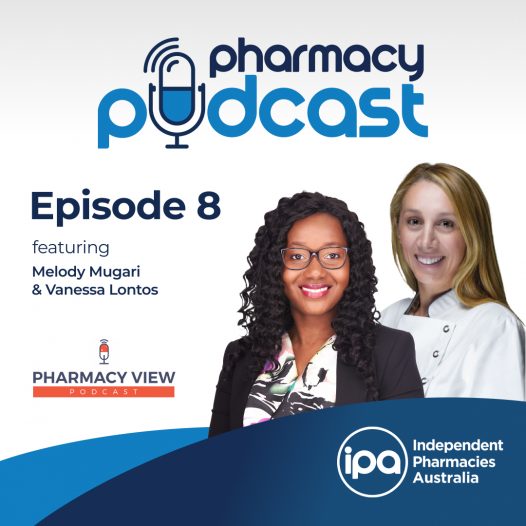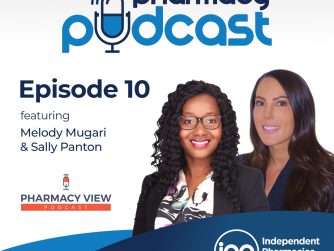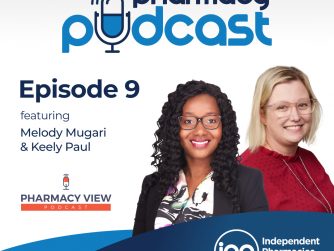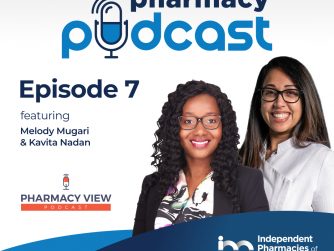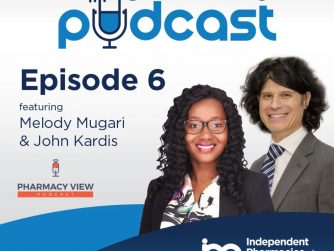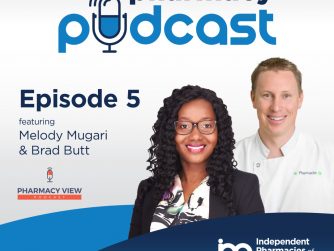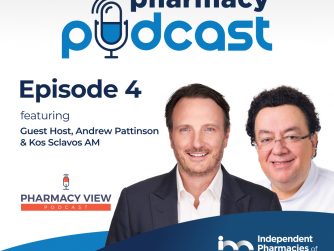In this episode of Pharmacy Podcast that provides regular interviews with Pharmacy leaders, entrepreneurs, and members of The Independent Pharmacies of Australia (IPA), host Melody Mugari, a Pharmacist and Programs and Corporate Partnerships Manager at The Independent Pharmacies of Australia (IPA) is joined by Vanessa Lontos, Head of Member Capability at The Independent Pharmacies of Australia (IPA). Together, they delve into the transformative role of holistic health care in Pharmacy, an approach that considers not just the medical needs of patients, but also their social, emotional, and mental well-being. Vanessa draws on her own experiences, both as a Pharmacy owner and a life coach, to share her passion for personalised, patient-centred care. She reflects on two pivotal moments in her life that have shaped her perspective: caring for her grandmother during her childhood, which highlighted the importance of accessible and empathetic health care, and overcoming her own health challenges through a combination of medication, yoga, and mindfulness. These experiences have driven her commitment to a holistic approach, which she believes is essential for improving patient outcomes.
Topics Covered
- Holistic Health Care in Pharmacy
- Empathy and Connection in Pharmacy
- The Power of Communication in Pharmacy
- Fostering Effective Communication within Pharmacy Teams
- Training Challenges and Solutions in Pharmacy
- IPA’s Learning Management System (LMS)
- Balancing Clinical and Non-Clinical Skills in Pharmacy
- Tips for Early-Career Pharmacists
- Creative Fun in Pharmacy
Key Quotes (Time Stamps)
- “There are two major experiences I’ve had in my life and career that really sort of helped me appreciate the importance of accessing holistic health care and essentially what that means to me in terms of—as an individual but also as a Pharmacist supporting patients in that way.” (4:09 – 4:35)
- “During my formative years, I really started to get a bit more of an understanding that medicine and holistic health really is around how do we make it easier for an individual to look after themselves in all the different ways: socially, emotionally, mentally, physically.” (6:07 – 6:27)
- “Whether you’re trying to take care of your team or yourself or your patient, it’s important to have that empathy and that perspective that there’s a number of different factors that can influence the outcomes or the experiences that we’re having and learning how to have those conversations about those different elements.” (8:05 – 8:24)
- “The quick answer is the communication skills and learning how to ask different questions. This actually makes us work in a more efficient way because it helps us get to the heart of the problem or the concern or the opportunity much quicker.” (10:26 – 10:47)
- “I actually deliberately went off to do coaching and health coach training and motivational interviewing training, specifically to learn some different questions, questioning techniques, conversation, communication techniques so that I could bring them back into my counseling conversations in the Pharmacy.” (13:19 – 13:34)
- “I started to notice that, ultimately, communication as a skill, was something that was helping me understand people more effectively, create change more easily, achieve different outcomes, both personally and in the business.” (14:21 – 14:38)
- “So, skills, rhythms and then it’s actually around the channels of communication and just setting the team up in such a way that we’re actually making this a priority.” (19:00 – 19:13)
- “I think safety in the workplace, well-being in the workplace is a really important area.” (21:33 – 21:38)
- “According to the research by Deloitte, only 1% of the typical workweek is all that full-time employees have to focus on training and development.” (24:07 – 24:15)
- “Modern-day learners actually want blended learning. They want to be able to interact with each other. They want to have really quick micro-learning opportunities. They want to learn in the flow of their work. They want to learn from peers and managers as much as from experts.” (25:46 – 26:00)
- “So ultimately, what we want to be able to do to our Pharmacy teams is provide blended learning, which means learning in a range of different formats. And the online platform gives us the opportunity to provide really short, quick, digestible video content, downloadable resources and tools that they can print, often utilising the flow of work or at the point of care or point of need.” (32:00 – 32:26)
- “The biggest challenge is actually ensuring that we’re balancing out our skills and capability development so that we’re able to ensure that every team member and every role that we’ve got in the Pharmacy is in their strengths.” (36:47 – 37:03)
- “It can be busy and it can be overwhelming and there are lots of things we’re learning, but if we keep remembering why we do what we do and why we do Pharmacy, I think, the magic really is in those moments of patient impact. So, that’s often why we get into the profession.” (48:42 – 48:57)
Important Time Stamps:
- How Empathy and Connection Transform Patient and Team Care in Pharmacy (2:05 – 9:27)
- Healing Beyond Prescriptions: The Art of Holistic Conversations (9:28 – 15:50)
- The Secret to High-Performing Teams: Communication & Psychological Safety (15:52 – 22:30)
- How 1% of Your Workweek Can Revolutionise Patient Care in Pharmacies (22:34 – 29:36)
- Blended Learning Revolution: Elevating Pharmacy Teams with IPA’s LMS (29:37 – 34:47)
- Balancing Clinical Expertise and Core Skills in Modern Pharmacies (35:06 – 45:58)
- Three Game-Changing Tips for Early-Career Pharmacists (46:12 – 49:38)
- From Heat Packs to Giggles: What’s in Your Life’s Pharmacy Aisle? (49:50 – 51:52)
Useful Links
Independent Pharmacies of Australia Group (IPA) | LinkedIn
The Independent Pharmacies of Australia Group (IPA) | Website
Chemist Discount Centre (CDC) | Website


